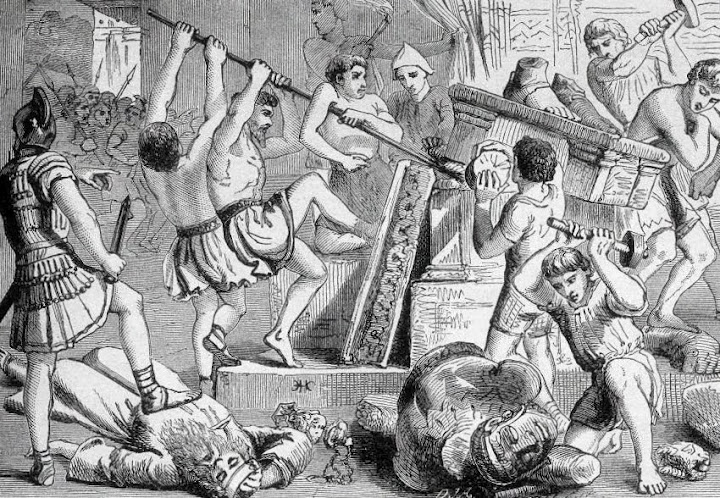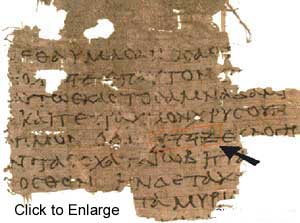
Jeremiah begins Chapter 5 searching for the reasons why the people
have turned from God. He knows what is coming and he is suffering from this
foresight. Do they act foolishly because they are “just poor folk?” The rich should
know better but they are far worse. He has tried to warn them but the people
have made little progress since the reforms of Josiah. Wish as he might,
Jeremiah will be unable to dissuade God’s anger.
Rabbi: Yes!
Jane: Yeah, I noticed that too!
Ceil: referring to 5:18,
God is addressing Jeremiah and explaining to him why the people will be
punished and how he should explain it to them/Israel.
Joel: referring to 5:19 “Because you forsook me and served
alien gods on your own land, you will have to serve foreigners in a land not
your own.”
Is this a reference to the New Egypt? I remember the quote
from the Passover Haggadah. It mentions Abraham and refers to the Egyptian
captivity.
Rabbi: Yes, this is from Genesis 15:13 “And He said to
Abraham, “Know well that your offspring shall be strangers in a land not
theirs, and they shall be slaves and oppressed…”
Very good Joel!
Note: In 609 BCE Josiah dies in the battle near Megiddo.
Josiah’s son Jehoahaz is made king but is quickly removed by Pharaoh Neco II
and deported to Egypt. Neco places Johoiakim, Jehoahaz’s brother, on the throne
where he will reign over Judah as an Egyptian vassal.
Joel: The tone in Jeremiah feels more punitive than what we
read in Isaiah. For example, “you, devoid of intelligence”, behaving as
“well-fed, lusty stallions/ Each neighing at another’s wife”… Also there are
frequent references to “the foolish”.
Rabbi: There is a real rawness in Jeremiah.
Gary: Is Jeremiah from the same cultural group as Isaiah? Is
he as well connected?
Julie: Jeremiah is a son of a priest but the prophets represent
the nation from all strata of life.
Bill: Maybe this is meant to attract all the different
groups within the nation.
Jane: They are communicating on many different levels,
similar to how a teacher would teach to a diverse group of learners.
Rabbi: Compared to Isaiah, Jeremiah’s task is more
difficult. The people will feel that he is betraying them; they do not want to
hear about the coming exile and they will punish him for it.
Julie: Maybe this is why he is called “the Weeping Prophet”.
Chapter 6
Julie: Rabbi, do we have rules of engagement in war at this
time in our history?
Rabbi: Yes, we can find the rules in Deuteronomy. They are
ethics that might not meet our modern standards, but they are there. We may
massacre all the pagan people, but the fruit trees must go unharmed as this is
God’s creation.
Bill: In war we are to leave the fruit trees unharmed? This
is very practical. If you win you will have fruit to eat. The land is then
yours.
Rabbi: Referring to the situation, the die is cast. The prophet
is not so naive to think that he can turn this situation around. He knows it is
too late. They will be punished and sent into exile.
Bill: So why bother? What’s the purpose?
Joel: Jeremiah is like a trauma/grief coach. He is going to
help them through it. It doesn’t mean it’s not going to happen. Rather Jeremiah’s
goal is assure the people that Israel as a whole nation will have a future.
Bill: This is similar to our 40 years of wandering in the
dessert. The older generation will not be able to enter the Promised Land but
the new generation will. God makes the decision that the older generation
cannot handle freedom. Likewise, the remnant living at the time of the prophets
must
adapt to a new future of freedom, but they all won’t survive those trying
times.




 Goddess Ashera and the goats
Goddess Ashera and the goats
